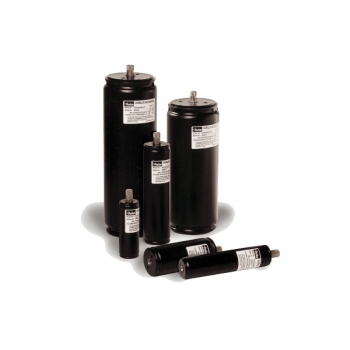To clearly and effectively understand what hydraulic accumulators are, it is essential to start from their role in hydraulic systems. Accumulators are devices capable of storing energy in the form of pressurized fluid and releasing it when needed, thereby allowing a constant regulation of pressure and flow within the circuit. They are used to compensate for volume variations, absorb water hammer effects, maintain pressure in circuits in the event of faults or power loss, and contribute to the system’s safety.
Hydraulic accumulators consist of a chamber filled with an inert gas (usually nitrogen) and separated by a piston, a diaphragm, or a bladder. When oil enters the device, it compresses the gas, which behaves like a spring. When needed, the oil is released by exploiting the gas expansion. There are three main types: bladder, piston, and diaphragm accumulators, each suitable for specific applications in terms of pressure and volume.
To explore available solutions, discover the Hydraulic Accumulators – LubeTeam, where you’ll find a detailed overview of the offered products.

Applications and selection criteria
Hydraulic accumulators are used in a wide range of industrial sectors, including earthmoving machinery, production plants, hydroelectric power stations, industrial presses, and lifting systems. Their versatility lies in their ability to adapt to different operating conditions and respond quickly to peaks in energy demand.
When selecting an accumulator, it is important to consider several key factors: the required volume capacity, the maximum operating pressure, fluid compatibility, physical dimensions, and usage frequency. Additionally, current safety regulations must be considered, which require periodic inspections, specific certifications, and the use of safety devices such as relief valves and pressure gauges.
The use of properly sized accumulators integrated into the system allows optimization of energy consumption, improved machine performance, and extended system life, while also reducing maintenance costs and the risk of downtime.
Main advantages of hydraulic accumulators
- Compensation of pressure and volume fluctuations in the circuit
- Instant energy reserve available in case of failure
- Reduction of water hammer and hydraulic vibrations
- Improved energy efficiency of the system
- Protection of components and extension of their service life
- Applicability in various industrial and mobile contexts
- Contribution to system safety and operational stability

